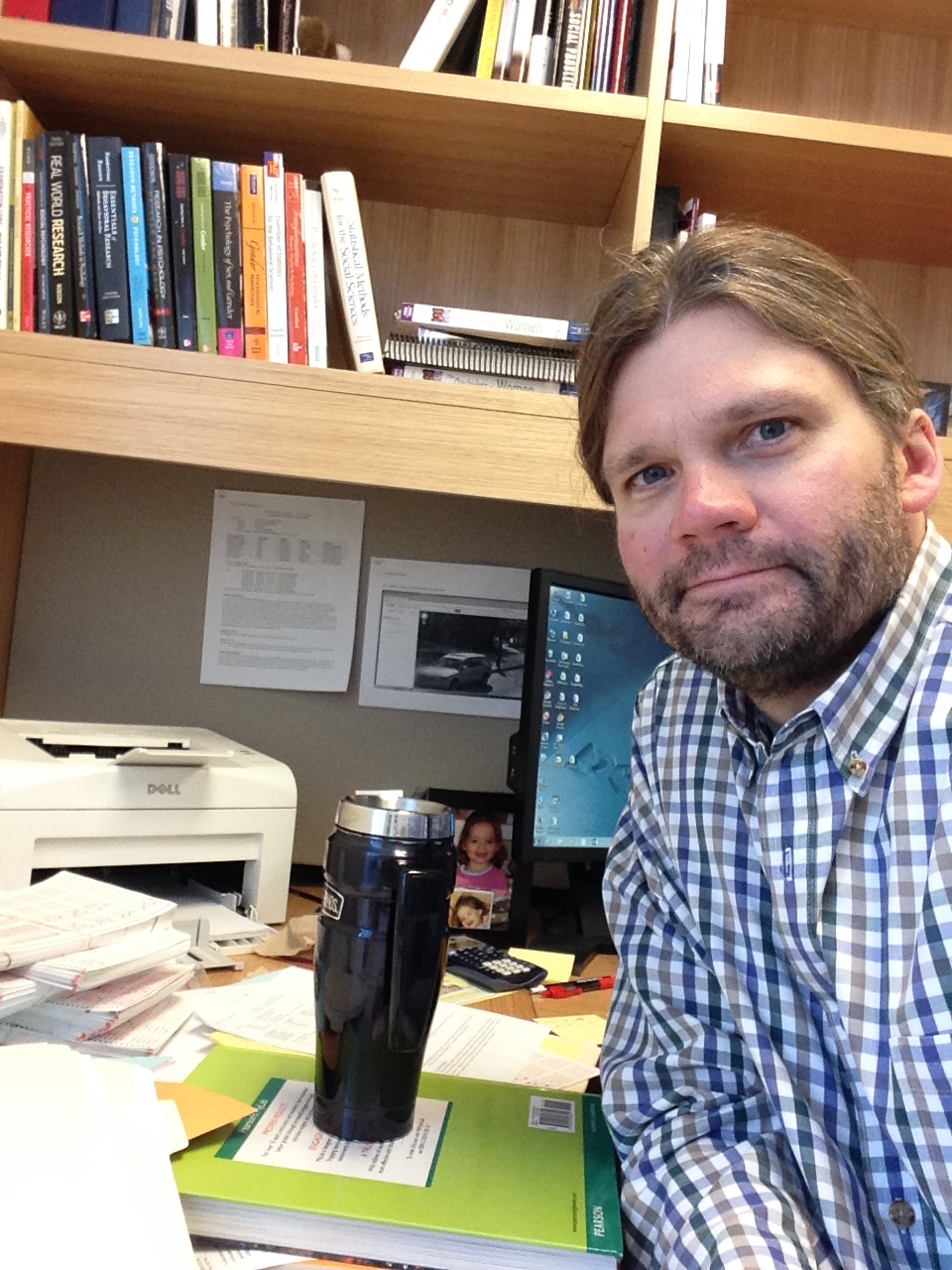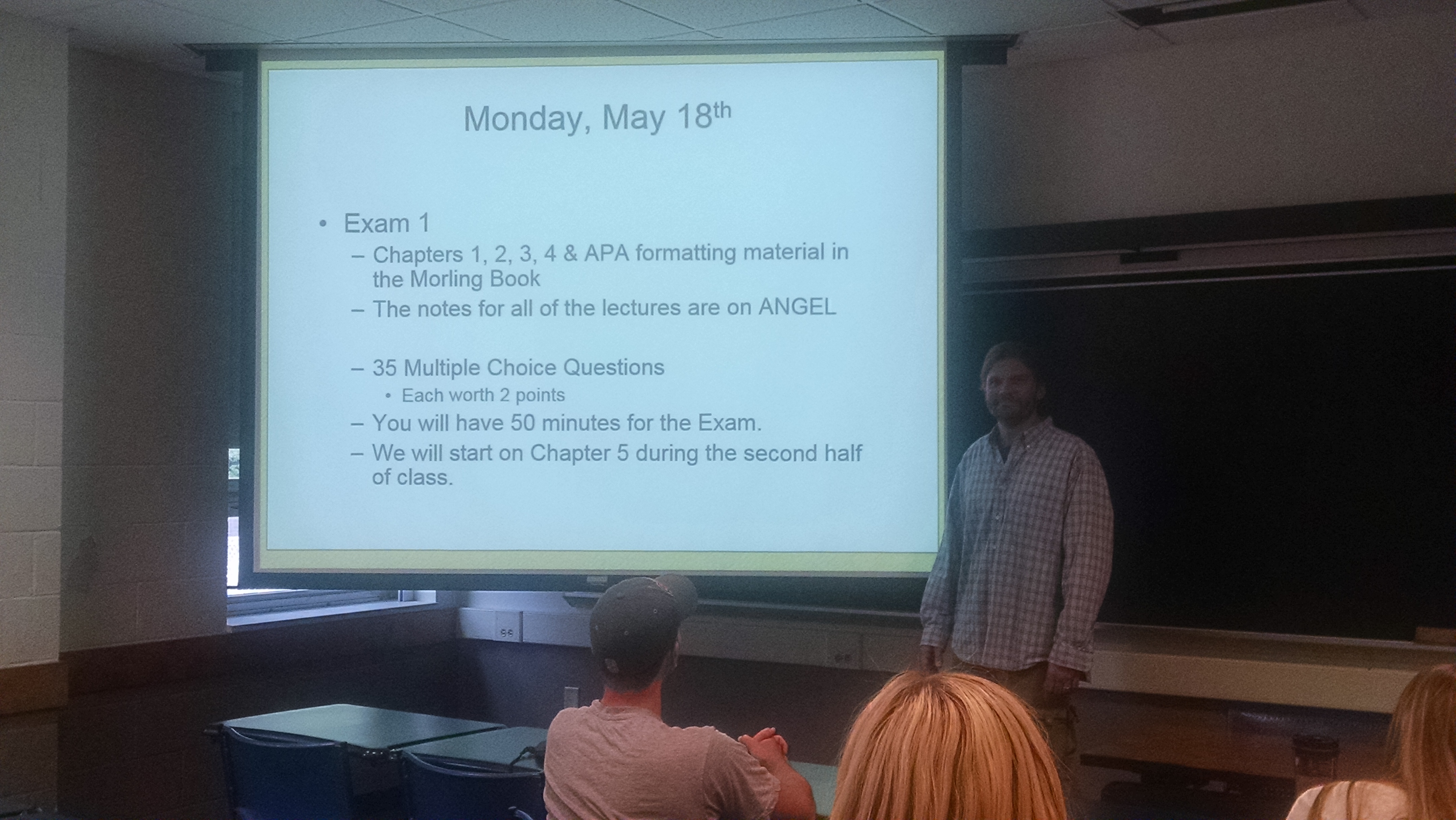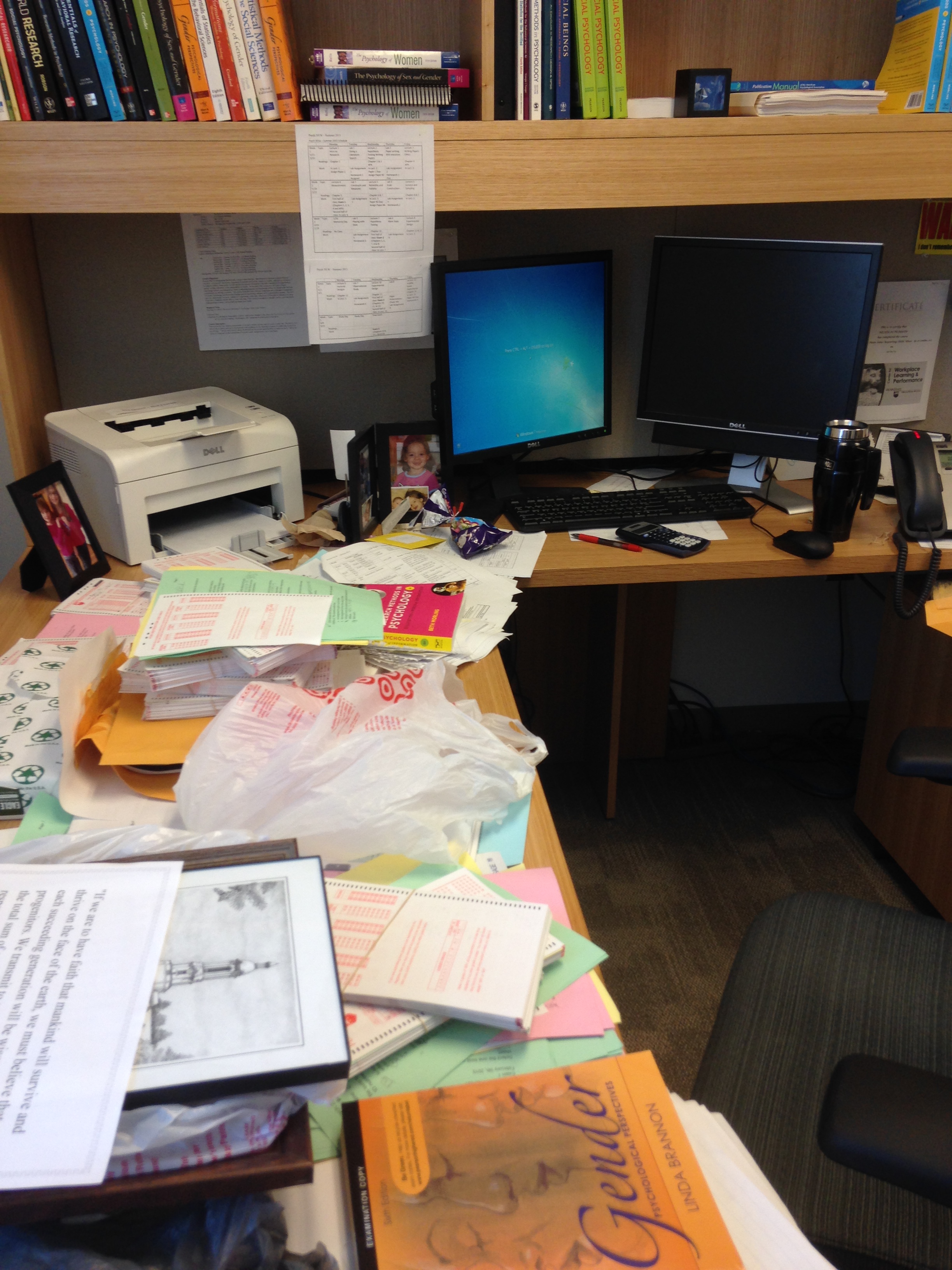 School name: The Pennsylvania State University
School name: The Pennsylvania State University
Type of college/university: 40,000+ state university (R1)
School locale: small college town in the middle of Pennsylvania
Classes I teach:
Research Methods in Psychology, Introduction to Social Psychology, Psychology of Gender, Elementary Statistics in Psychology
What’s the best advice about teaching you’ve ever received?
My mother was a special education teacher for 20 years. She taught me that under the right guidance any student can find success.
What book or article has shaped your work as a psychology teacher?
I’m not sure that I can point to a single “thing” that has influenced me. I believe that it has been the influence of many great educators in my life. From elementary school through my graduate education I have been very fortunate to be surrounded by dedicated and energetic teachers.
Tell us about your favorite lecture topic or course to teach.
My primary interest is in issues of social justice, so I am very invested in topics related to prejudice and stereotyping. Many of my students have never been asked to consider what it means to live life without the privileges they take for granted. When I can sense that their eyes are opening to the prevalence of bias in the world, then I know I’ve accomplished something worthwhile.
Describe a favorite in-class activity or assignment.
I have a lecture I give on the social psychology of our judicial system. During the lecture I wander around the front of the room (as I usually do) and then when we talk about the accuracy of eyewitness testimony I ask them how many times I touched a table at the front of the room. It’s a nice way to illustrate how eyewitnesses can misremember and be perfectly confident in their memories. (I never actually touch the table J.)
What teaching and learning techniques work best for you?
Most of my classes are rather large (90, up to 320 students) so I do rely on multiple choice exams for pragmatic reasons. I also incorporate “In-Class Assignments” to stimulate participation and generate discussion among the students during class time. My research methods class is a writing course, so my students complete a series of written assignments including a formal research proposal paper that is designed to prepare them for the rigors of graduate school.
 What’s your workspace like?
What’s your workspace like?
Picture a paper recycling center after a tornado comes through.
Three words that best describe your teaching style.
Lively. Unpredictable. Engaging (I hope).
What is your teaching philosophy in 8 words or fewer?
Make theories relatable, knowledge empowering, and learning interesting.
Tell us about a teaching disaster (or embarrassment) you’ve had.
It’s a familiar story. An entire lecture built around a series of short videos… on the day that the classroom internet connection is broken. I turned it into a discussion of Dollard’s frustration-aggression hypothesis so it wasn’t a complete loss.
What is something your students would be surprised to learn about you?
I spent five years working as a stone mason in New Mexico and Oregon before going on to graduate school. Beating rocks with a hammer all day long makes one appreciate the intellectual pursuits in life.
What are you currently reading for pleasure?
James, A. (2012). Assholes: A theory. New York: Doubleday. I do work in academia after all.
What tech tool could you not live without?
I’m going to be a bit of a wise-guy and say chalk. I rely heavily on PowerPoint presentations but in almost every class I end up drawing something on the chalk board to help clarify a point or answer a question from a student.
What’s your hallway chatter like? What do you talk to colleagues about most (whether or not it is related to teaching/school)?
We have a very supportive cohort of instructors and professors here so much of the talk is related to student issues. You also might hear, “how was your weekend,” “did you catch the game last night,” or “it’s how many weeks until the end of the semester?!”
